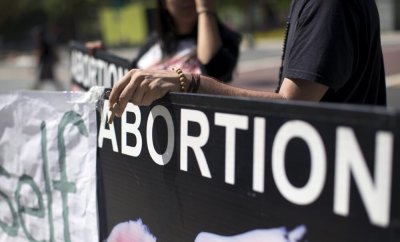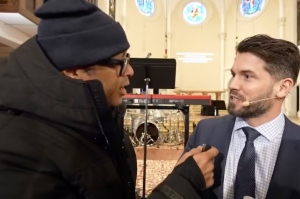Stigmas don’t end with abortion. Some women need help afterward

Since the U.S. Supreme Court’s Dobbs v. Jackson decision about a year ago sent abortion laws back to the states, stories have abounded about abortion stigma — that being against abortion can hurt women.
The New York Times published an article before the decision was made official on the perceived emotional cost of being denied an abortion, and the American Psychological Association has since said that abortion restriction harms mental health.
At my organization, Support After Abortion, we see the negative link between abortion opposition and women’s mental health every day. Some women tell us they feel like they aren’t welcome at church, or they can’t tell family members what happened to them out of fear of judgment and being disowned. Other women fear being prosecuted under anti-abortion state laws.
However, this narrative doesn’t tell the whole story. Our recent study of women who experienced medication abortion found that 55% of self-described “pro-choice” women struggled afterward. Other women call Support After Abortion’s Help Line with stories of not being able to share their feelings because their friends and family think that abortion leads to only positive outcomes.
As a licensed therapist and social worker, I’ve seen how knowing you’re not alone is one of the most powerful tools for positive mental health. Many women tell us they felt relief after their abortion, and most women didn’t suffer adverse impacts. But one in three women said they experienced negative changes such as depression, anxiety and grief related to their abortion, and 63% of all women sought help after a medication abortion or said they could have used someone to talk to.
It’s unknown exactly how many women suffer after abortion: 34% of women in our study said their outlook of themselves or their decision changed negatively since their abortions; while 5% of women regretted their abortion in the Turnaway Study, conducted by the Advancing New Standards in Reproductive Health research group at the University of California, San Francisco; and nearly 70% of women reported adverse impacts in a new study from the Charlotte Lozier Institute, the research institute of Susan B. Anthony Pro-Life America. But they all deserve compassionate care, regardless of our personal beliefs about abortion.
The calls we receive tell the tale of isolation and disempowerment. Some women keep their abortions secret because they don’t want to be judged. Others feel isolated by boyfriends and husbands who won’t address their feelings of confusion, pain and often grief related to the abortion or at the loss of their children. And still, others feel like if they share their struggles, they’ll be ostracized for not shouting about their abortion — even if, just like their friends and family, they are pro-choice.
Compassion and openness are the keys to reducing isolation. We should begin by telling the woman in this situation that we are sorry for her loss. This simple acknowledgment of right now — her pain, confusion and loneliness — lets her know that we are ready to meet her and join her, wherever she is in her journey. Her isolation is over because someone in the world is hearing her heart.
It’s easy to find stories of women who say their shame and sadness were triggered by anti-abortion laws. They are everywhere. It fits less easily but is no less important to share, that many women are triggered by the exact opposite — disempowerment and dismissal of their pain. Mental health of all kinds has nothing to do with politics, and everything to do with the humans behind the pain and trauma.
Originally published at The Messenger.
Lisa Rowe, LCSW, is CEO of the abortion healing organization Support After Abortion.



























